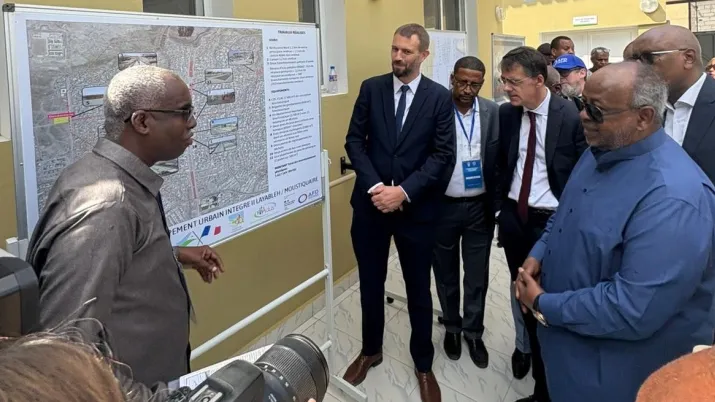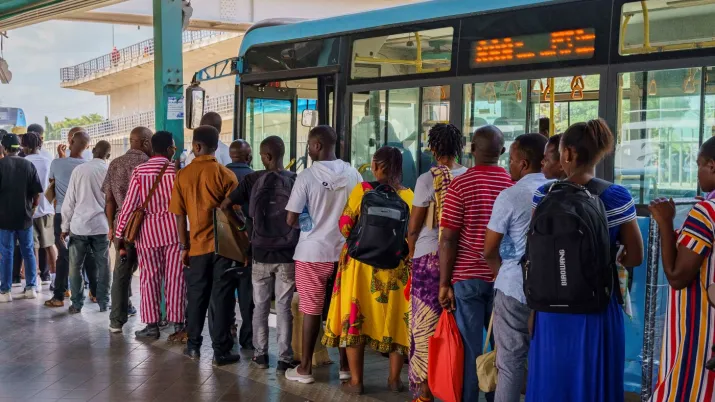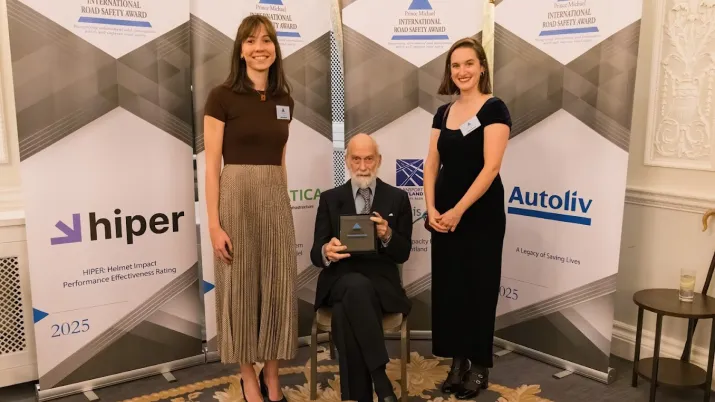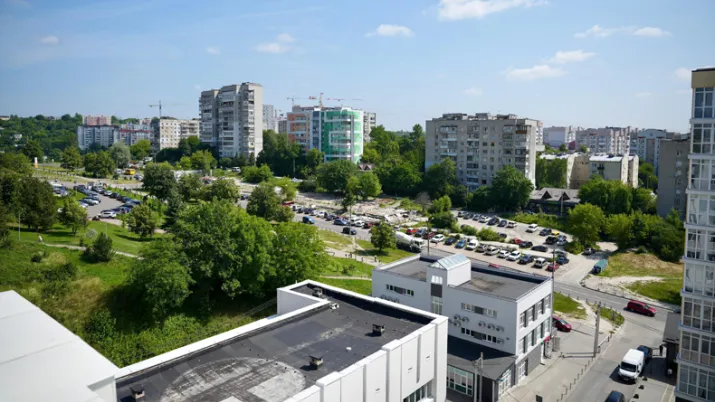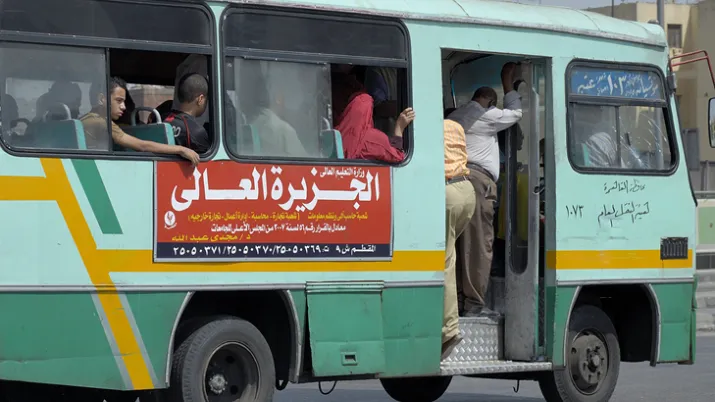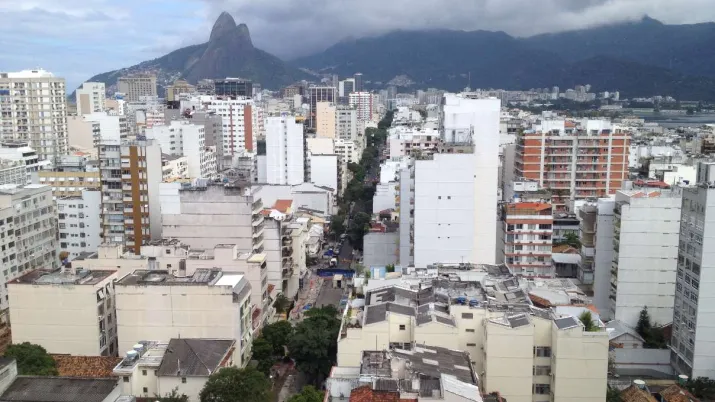Share the page
Mobility and transport
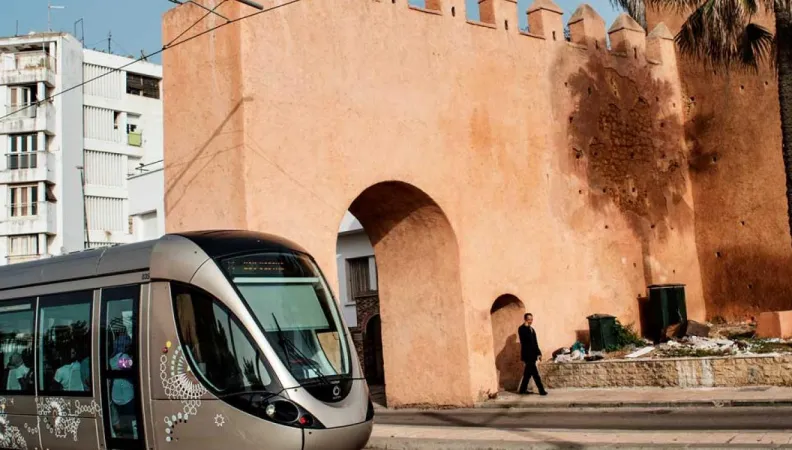
Our commitment
The mobility of people and goods is indispensable for access to employment and essential services, the functioning of the productive economy and ensuring that cities remain effective and livable.
AFD supports mobility systems that combine infrastructure, services and regulations to ensure that each actor can travel with efficient, equitable and sustainable solutions.
Our approach
Rapid population growth, the globalization of trade... Demand for mobility, from both people and goods, is constantly rising. By 2030, annual passenger traffic will increase by 50% compared to 2015. The figure stands at +70% for freight. There will be 1.2 billion more cars on the road.
There are many challenges. Still today, the majority of Africa’s population does not have access to an all-season road at less than 2 km, and precarious neighborhoods in large developing cities are not connected to economic and social opportunities. Ensuring universal access to mobility requires investing astronomical amounts in mobility and service infrastructure, and subsequently being able to maintain this network. Mobility systems need to be efficient, both in their design and operation. Furthermore, the issue of safety is more important than ever, given the number of road fatalities. Finally, the last challenge is environmental: the sector is still a major consumer of fossil fuels (1/3 of fossil emissions) and needs to integrate the fight against air pollution and greenhouse gas emissions.
To address these challenges, AFD will support the development of mobility systems that are:
- Inclusive and therefore accessible to all: well-served, but also with an appropriate tariff system
- Well-managed, efficient and effective
- Safe and secure, with a “road safety” dimension and a focus on tackling the insecurity of women in public transport and spaces
- Sustainable, via solutions able to reduce greenhouse gas emissions related to urban transport.
In 2022, our commitment to mobility and transportation totaled €1.8 billion and was characterized by a focus on urban mobility projects.
AFD and mobility: ensuring access to safe, green and efficient transport for all
By 2050, 70% of the world’s population will be living in cities. 90% of the 2.7 billion new urban dwellers will be living in developing countries. Consequently, in the South, it is crucial to maintain, build or regain “livable” cities, despite rapid economic development and an increase in urban flows (people and goods). This applies to both the megacities which have already been established and rapidly growing secondary cities, in the major emerging countries and in the poorest countries.
Up until now, AFD has mainly financed “mass” public transport infrastructure (metros, tramways, bus rapid transit systems). The new intervention framework has extended AFD’s scope of intervention so that it can:
- Support the definition and implementation of public policies for sustainable mobility, at national and local level (planning, governance, financing mechanisms, capacity building for actors).
- Finance all the components of a sustainable mobility policy: optimization of traffic flows, paths for pedestrians and cyclists, electric mobility, etc.
- Make mobility contribute to the “quality of the city” and build a long-term vision integrating transport and urban planning.
- Support the modernization of small-scale and informal transport, the main mode of urban transport in the South.
- Systematically seek to integrate innovation in terms of the digital and energy transformation of mobility services.
At national level, a country’s economic development is based on the connection and enhancement of the main and secondary development hubs in order to provide a balanced distribution of employment areas, services and therefore of populations. This development requires “connectors”, such as roads, railways, or waterways.
In countries in the South, in addition to megacities and regional capitals, the rapid development of “small cities” or towns is a major challenge. In this case, transport systems are crucial for ensuring access to services, jobs and markets for local agricultural production for all.
In this context, our action aims to:
- Strengthen the national network by focusing on the rehabilitation and reinforcement of existing infrastructure
- Improve access for rural areas to facilitate their integration into the territory
- Promote improvements in the governance of public operators, particularly service and maintenance policies
- Integrate road safety more ambitiously
- Bring about projects to improve the energy efficiency of both public and private operators.
With over 10 billion tons transported, the volume of maritime transport today accounts for some 90% of global trade: it is the backbone of the economic development of countries. At the same time, air cargo accounts for small volumes, but has strong added value (35% of global value). The air transport of passengers, for its part, is booming, with some 3 billion passengers carried. It is estimated that air transport generates a total of some 3.5% of world GDP.
Opening up areas and integration into international trade are prerequisites for economic development, especially for island territories and Africa, which suffers from the fact that it is lagging behind in infrastructure.
Our operations have the following objectives:
- Open up territories to ensure they effectively integrate international trade, with operations in Africa and the French overseas territories a priority
- Promote the knock-on effect of the major port and airport international trade platforms on the balanced development of territories, by improving integration with road and rail networks
- Assist local authorities in improving the effectiveness of regional logistics corridors
- Accelerate the necessary energy transition of maritime and airport sectors
- Improve the safety and security of international transport.
The transport sector causes 23% of global emissions related to energy generation and consumption. It is above all the sector where emissions are rising at the fastest pace, particularly in emerging countries: indeed, fast-growing urbanization combined with economic development lead to sharp growth in demand for mobility and individual vehicles. If no proactive action is taken, these emissions will increase by 140% by 2050. 90% will come from countries in the South.
There are solutions for low-carbon mobility. They combine four key dimensions for the energy transition of the sector:
- Avoid the motorized transport of people and goods via more compact and mixed urban planning or by promoting remote solutions (teleworking, e-administration, etc.).
- Shift travel towards low-carbon modes, by financing a high-quality public transport network and discouraging the use of private cars in city centers.
- Improve factors causing vehicle and fuel emissions by modernizing fleets, promoting low-carbon motorization (electric mobility, but also hybrid or gas) and through regulation.
- Make these actions possible through efficient, integrated and responsible governance and through the effective implementation of the planned measures and the evaluation of impacts.
On the ground
Below, you’ll find projects, news, and publications related to this topic — all in one place.
News & events
AFD Bouaké SERIOUS Road Safety Project Awarded Prestigious Prince Michael International Road Safety Award
Published on November 26, 2025
Related topics
Key figures
-
1.8 billion euros committed for transport and mobility in 2022
-
8.8 million people will benefit from improved access to sustainable transport
-
79% of commitments in the transport sector have climate co-benefits in 2019

